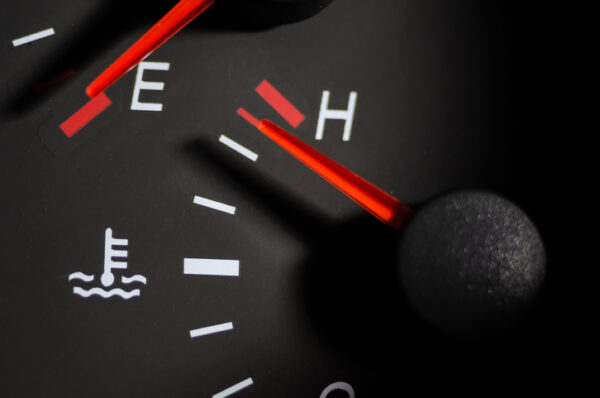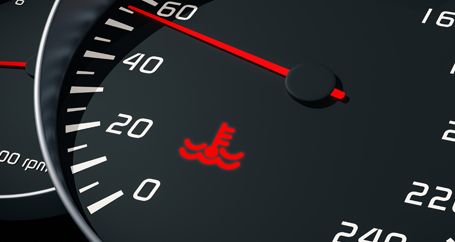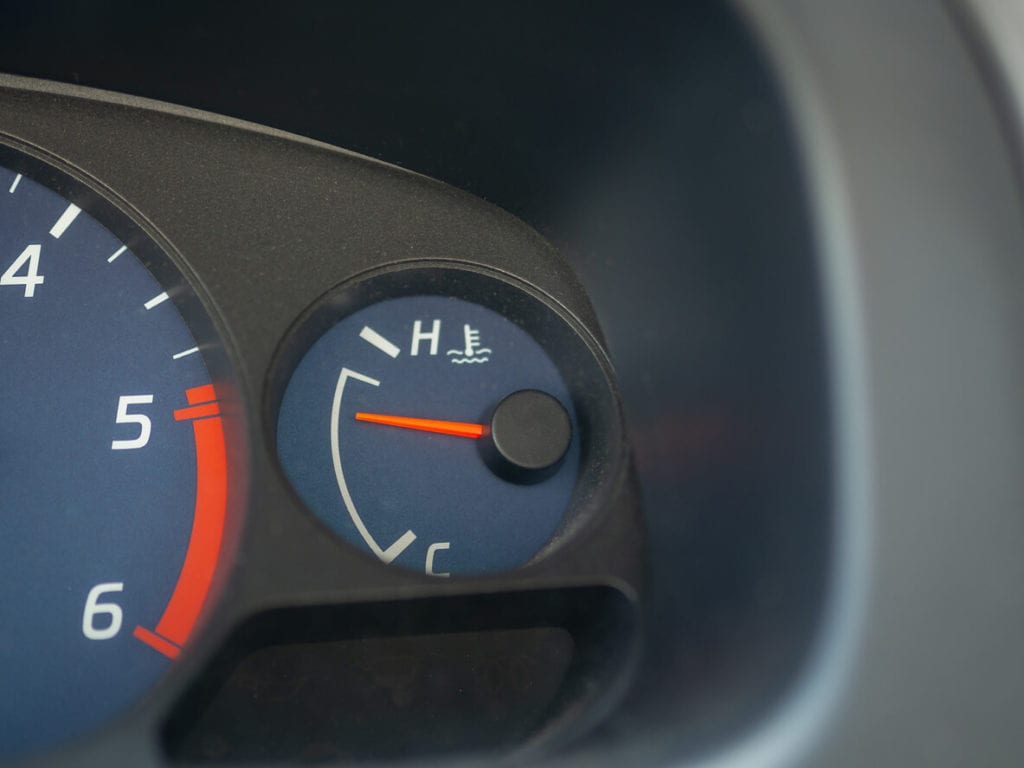Your truck is overheating when the temperature gauge rises above normal. Steam from the hood is another sign.
Overheating is a common issue faced by truck owners. Trucks work hard, often under tough conditions. Knowing the signs of overheating can save you from serious engine damage. Ignoring the problem can lead to costly repairs and safety risks. In this post, we’ll explore the key indicators that your truck is overheating.
We’ll also discuss what you can do to prevent and address this issue. Proper maintenance and quick action can keep your truck running smoothly. Let’s dive into the details and keep your truck safe and efficient on the road.
Signs Of Overheating
Steam from the hood or a rising temperature gauge indicates your truck may be overheating. Strange smells, especially sweet or burning odors, are also signs. Unusual engine noises, such as knocking or hissing, may signal overheating issues.
If you’re driving a truck, it’s crucial to keep an eye on the signs of overheating. Ignoring them can lead to serious engine damage and costly repairs. So, what are the telltale signs that your truck might be overheating?Temperature Gauge
One of the first places you should look is the temperature gauge on your dashboard. This gauge measures the heat coming from your engine. Normally, it should sit in the middle range. If the needle starts to creep toward the red zone, it’s a sign that your engine is getting too hot. I remember a time when I was driving through the desert, and my gauge slowly but surely moved into the danger zone. I had to pull over and let the engine cool down to avoid damage.Steam From Hood
Another clear sign is steam coming from under the hood. This usually means the coolant is boiling over. It’s a visual clue that your engine is way too hot. You might think it’s just a bit of smoke, but it’s actually a sign to stop immediately. Continuing to drive with steam billowing out can lead to a blown head gasket or even a cracked engine block. Have you ever seen steam coming from your truck and wondered if it was serious? Trust me, it is. If you spot these signs, take action quickly. Pull over safely, turn off the engine, and let it cool down. Always carry extra coolant and water to top off your levels if needed. Your truck’s health—and your wallet—will thank you.Engine Performance Issues
Engine performance issues are one of the most telling signs that your truck might be overheating. If you notice a difference in how your vehicle drives, it could be a direct result of an overheating engine. Let’s look at some specific symptoms you should be aware of.
Loss Of Power
Have you ever pressed the gas pedal and felt like your truck isn’t responding as it should? This loss of power can be alarming. An overheating engine can cause this by affecting the combustion process, making your truck struggle to maintain speed or even accelerate. Imagine trying to drive uphill, and your truck just doesn’t have the power it usually does. It’s frustrating and can be dangerous in certain situations.
Keep an eye on your temperature gauge. If you notice it creeping into the red zone while experiencing power loss, it’s a clear indicator something is wrong. Pull over safely and let the engine cool down before continuing your journey.
Engine Stalling
Engine stalling is another critical issue that can arise from an overheating truck. Picture this: you’re at a stoplight, and as soon as you try to move, your engine shuts down. It’s not only inconvenient but can also be quite hazardous.
Stalling happens because the engine components are too hot and can’t function properly. This could be due to insufficient coolant, a faulty thermostat, or a malfunctioning cooling fan. Each of these elements plays a crucial role in maintaining your engine’s temperature.
Have you checked your coolant levels recently? Sometimes the simplest checks can prevent major issues. Regular maintenance can help avoid these frustrating experiences and keep your truck running smoothly.
Are you experiencing any of these symptoms with your truck? If so, don’t ignore them. Addressing engine performance issues promptly can save you from more severe damage and costly repairs down the road.
Warning Lights
Knowing the warning lights on your truck can save you from big problems. These lights tell you when your truck is not working right. They are important for keeping your truck in good shape. Here, we will talk about the two main lights that show your truck is overheating: the Check Engine Light and the Temperature Warning Light.
Check Engine Light
The Check Engine Light is a sign that something is wrong. It can mean many things, including overheating. This light looks like an engine and is usually yellow or orange. When it comes on, your truck’s computer has found a problem. Sometimes, this problem can be the engine getting too hot. Do not ignore this light. Check your engine as soon as possible.
Temperature Warning Light
The Temperature Warning Light is specific to overheating. It looks like a thermometer and is usually red. This light means your truck’s engine is too hot. When you see this light, it is important to act fast. Pull over and turn off your truck. Let it cool down before checking the coolant level. Driving with this light on can cause serious engine damage.

Credit: living.geico.com
Unusual Noises
When your truck starts making strange sounds, it could be a sign that something is wrong. Unusual noises can indicate that your truck is overheating. Being aware of these sounds can help you prevent bigger problems down the road.
Knocking Sounds
One of the most common noises to listen for is knocking. This sound often comes from the engine and can be a clear sign that it’s overheating. Knocking usually means that the engine parts are expanding due to excessive heat.
I once heard a knocking noise while driving my truck up a steep hill. I pulled over, checked the temperature gauge, and it was indeed overheating. Taking immediate action saved me from costly repairs.
Have you ever ignored a knocking sound, thinking it would go away? Doing so can cause serious engine damage. Always pay attention to new or unusual noises.
Sizzling Noises
Another telltale sign of an overheating truck is a sizzling noise. This sound often comes from under the hood and indicates that coolant is leaking onto hot engine parts. This usually happens when the engine is too hot and the coolant can’t keep up.
Imagine driving on a hot summer day and hearing a sizzling sound every time you stop at a light. That’s a sign your truck needs immediate attention. Pull over safely and check for leaks or steam.
Sizzling noises can be subtle but should not be ignored. They can lead to a complete engine failure if not addressed promptly. Have you experienced this sound before? If so, what action did you take?
Listening to your truck can save you a lot of trouble. Paying attention to unusual noises like knocking and sizzling can help you catch overheating issues early. What unusual sounds have you heard from your truck lately?
Coolant Leaks
Steam rising from the hood is a clear sign of your truck overheating. A sweet smell or puddles under the vehicle also indicate coolant leaks. Pay attention to the temperature gauge on the dashboard.
Coolant leaks are one of the primary indicators that your truck might be overheating. It’s crucial to catch these leaks early to prevent severe engine damage. Let’s dive into some clear signs that your truck may be suffering from coolant leaks.Visible Leaks
One of the most straightforward ways to identify a coolant leak is by checking for visible signs. Look under your truck after it’s been parked for a while. If you notice a puddle of green, orange, or pink fluid, it’s likely coolant. Another spot to check is around the engine. Coolant can leak from hoses, the radiator, or the water pump. Even a small leak can lead to big problems if left unchecked. If you spot any visible leaks, address them immediately. Ignoring these signs can result in your truck overheating and causing engine damage.Low Coolant Levels
Have you ever had to frequently top off your coolant? This could be a sign of a leak. Check your coolant levels regularly to ensure they are within the recommended range. If your coolant levels are consistently low, there’s a good chance you have a leak somewhere in the system. This could be due to a damaged hose, a failing radiator, or even a bad head gasket. To confirm, let your truck cool down and then check the coolant reservoir. If it’s low, top it up and monitor the levels over the next few days. If it drops again, you likely have a leak that needs attention. Do you want to keep your truck running smoothly? Regular checks and maintenance of your cooling system can save you from costly repairs down the line.
Credit: www.farmers.com
Radiator Problems
Radiator problems are a common cause of truck overheating. Your radiator is crucial for keeping your engine cool, but it can run into issues that cause your truck to overheat. Let’s explore some specific radiator problems that can lead to overheating.
Clogged Radiator
A clogged radiator is a frequent culprit behind overheating. Over time, dirt, debris, and rust can block the radiator’s channels, reducing its efficiency. This blockage prevents the coolant from flowing freely, which means your engine can’t cool down properly.
Have you noticed your temperature gauge creeping up more than usual? It might be because your radiator is clogged. A simple flush can often solve this issue.
Once, on a long road trip, I noticed my truck’s temperature rising rapidly. After pulling over and checking under the hood, I discovered a clogged radiator. A quick visit to a local mechanic for a flush saved my trip and my engine. Have you checked your radiator lately?
Damaged Radiator Fan
The radiator fan plays a vital role in cooling your engine, especially when your truck is idling or moving slowly. If the fan is damaged or not working properly, it can’t help dissipate the heat. This can quickly cause your engine to overheat.
Have you ever felt a blast of hot air when you popped the hood? That could be a sign of a faulty radiator fan. Regularly inspect the fan for any visible damage or unusual noises.
There was a time when my truck’s fan motor burned out. I noticed the engine temperature rising every time I got stuck in traffic. Replacing the fan motor was a straightforward fix that kept my truck running smoothly. Could your radiator fan be the reason your engine is overheating?
By addressing these common radiator problems, you can keep your truck running cool and avoid costly repairs. So, when was the last time you checked your radiator?
Dashboard Indicators
Keeping an eye on your truck’s dashboard indicators is crucial to prevent overheating. Your dashboard is like a window into your truck’s health. It provides real-time updates and alerts that can help you avoid serious damage.
Temperature Gauge Behavior
Your truck’s temperature gauge is the first line of defense against overheating. Typically, the gauge has a needle that moves between ‘C’ for cold and ‘H’ for hot. A healthy engine will usually have the needle in the middle.
If the needle starts creeping towards the ‘H’, it’s a sign that your engine is getting too hot. This can happen when the truck is under heavy load or climbing steep hills. You should pull over and let the engine cool down.
Warning Messages
Preventive Measures
Preventive measures are crucial to ensure your truck doesn’t overheat. Taking proactive steps can save you from costly repairs and keep your truck running smoothly. Let’s dive into some of these key preventive measures.
Regular Maintenance
Regular maintenance is the backbone of preventing overheating. Scheduling routine check-ups can help you spot issues before they become serious.
Think about the last time you took your truck for a tune-up. Did you check the radiator and hoses? These components can wear out over time, causing leaks and overheating.
Don’t wait for a breakdown. Regular inspections can help you catch problems early and keep your truck in top shape.
Coolant Checks
Coolant checks are another vital preventive measure. The coolant is essential in keeping your engine temperature stable.
Have you ever noticed a puddle of green or orange liquid under your truck? That could be a coolant leak. Checking the coolant levels regularly can prevent such issues.
Top off the coolant when needed and inspect the system for any leaks. A small leak can lead to big problems, so don’t ignore it.
Preventive measures are all about being proactive. Regular maintenance and coolant checks can keep your truck from overheating. What steps will you take to ensure your truck stays cool?

Credit: www.sunautoservice.com
Frequently Asked Questions
How Do I Know If My Truck Is Overheating?
Check for warning signs like high temperature gauge, steam from the hood, or strange smells. Listen for unusual engine noises.
How Do You Fix An Overheated Truck?
To fix an overheated truck, pull over immediately. Turn off the engine and let it cool. Check coolant levels and add if needed. Inspect for leaks, damaged hoses, or a faulty thermostat. If unsure, call a mechanic.
What Does An Overheating Engine Feel Like?
An overheating engine feels extremely hot. You’ll notice a burning smell, steam from the hood, and the temperature gauge rising.
What Can Happen If Your Truck Overheats?
An overheating truck can damage the engine, warp the cylinder head, and cause gasket failure. This can lead to expensive repairs.
Conclusion
Spotting an overheating truck is crucial for safety and maintenance. Check for warning signs like steam, high temperature gauge, or strange smells. Regular maintenance helps prevent overheating issues. Keep your coolant levels in check and inspect your radiator. Act quickly if you notice any signs to avoid severe damage.
Remember, a well-maintained truck runs smoothly and safely. Stay alert and keep your truck in top condition.

